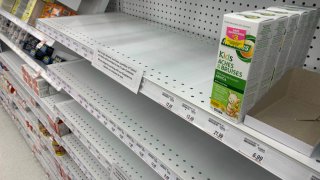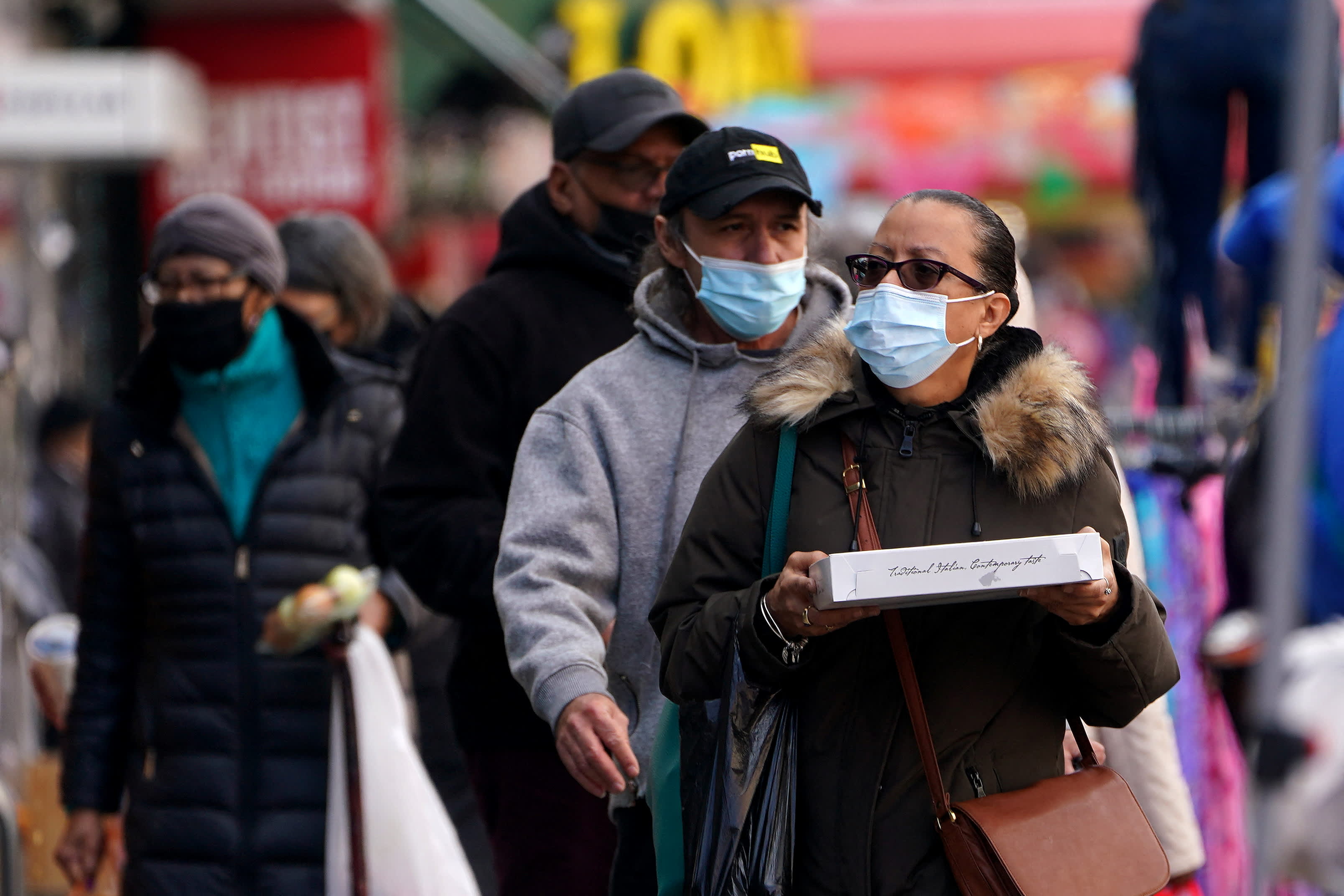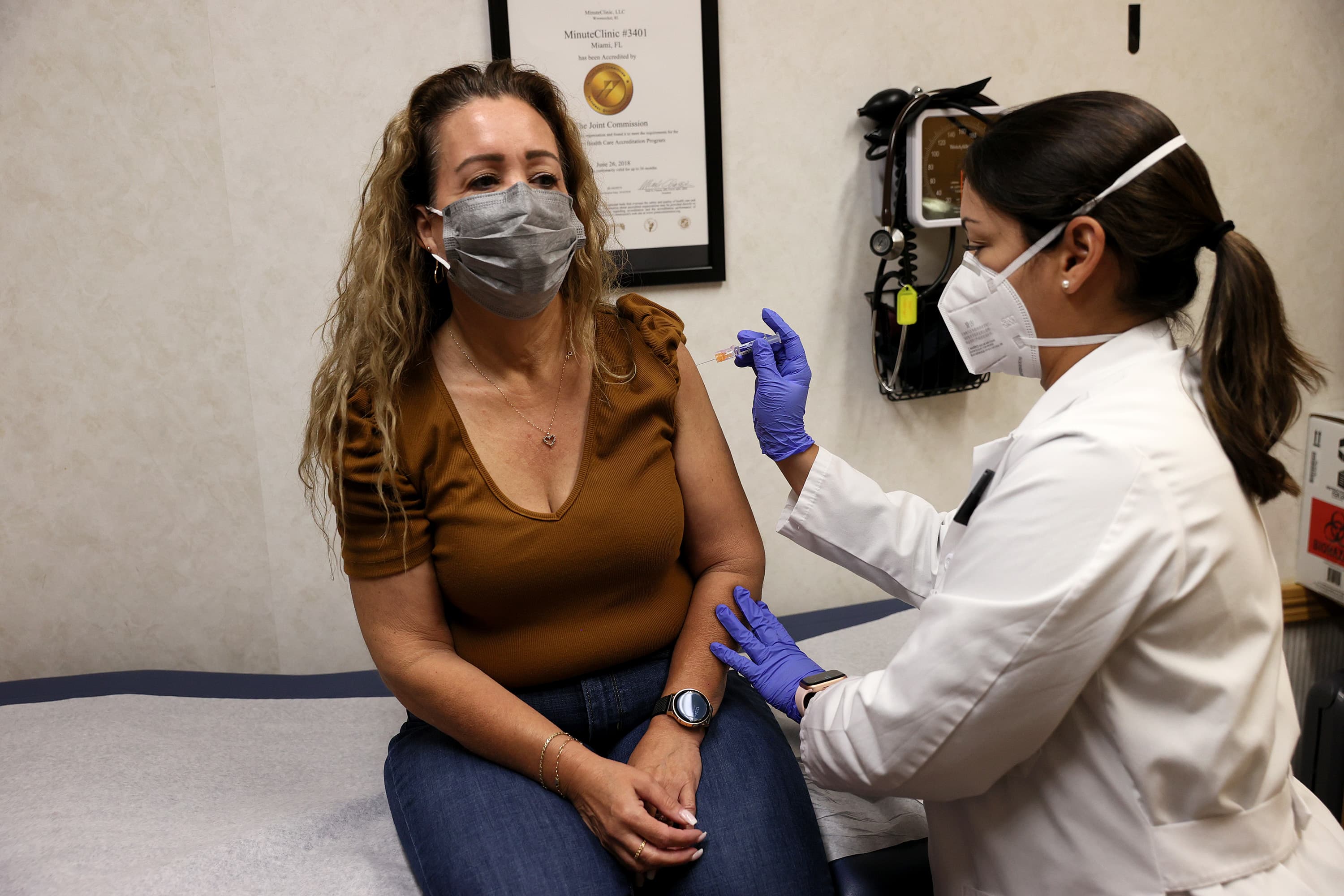
The surge in cases of flu, respiratory syncytial virus (RSV) and COVID-19 is causing shortages of prescription medications along with a massive strain on pediatric health care systems. And, as cold and flu season continues, some consumers may even have a hard time finding over-the-counter medications, like children's ibuprofen and acetaminophen.
When Dr. Vineet Arora stopped by her local drug store in Chicago to pick up some supplies for her sick 2-year-old son, she was shocked to see how bare the shelves were.
Get top local stories in Southern California delivered to you every morning. >Sign up for NBC LA's News Headlines newsletter.
"The children's Tylenol and Motrin looked ransacked," Arora tells TODAY.com, adding that she also couldn't find the digital thermometer or Pedialyte popsicles she'd been looking for.
Arora, who is the dean for medical education at the University of Chicago Pritzker School of Medicine, says the scene reminded her that her friends and colleagues in pediatrics are "getting crushed" and made her feel for fellow parents.
She decided to tweet a photo of the empty shelves.
"It's really difficult being a parent right now," Arora says. "And then not having the supplies that you need to take care of your kid when they're sick is even worse."
A spokesperson for Johnson & Johnson tells TODAY.com that the company is experiencing "high consumer demand" right now. "We are doing everything we can to make sure people have access to the products they need, including maximizing our production capacity, and running our sites 24 hours a day, seven days a week," the spokesperson says.
"Some products may be less readily available due to this increased demand but we are not experiencing an overall shortage of Children’s Tylenol or Children’s Motrin in the United States," the spokesperson continues. "We will continue to work with our retailers to provide these products throughout the cold and flu Season.”
An 'unprecedented' respiratory virus season
"It's absolutely been bonkers since mid-September," Dr. Shelly Vaziri Flais, a Chicago-based pediatrician and spokesperson for the American Academy of Pediatrics, tells TODAY.com. In her 20 years of practice, Flais says she's "never seen a fall of this nature, in terms of RSV and influenza."
Arora’s son had just recently recovered from RSV when he got sick again, she says. This time, he was diagnosed with COVID-19.
With a more severe and earlier-than-anticipated surge in respiratory viruses, pharmacists are seeing shortages of prescription medications (including amoxicillin and Tamiflu), as well increased demand for over-the-counter drugs like children's ibuprofen and acetaminophen, Brigid Groves, pharmacist and senior director of practice and professional affairs at the American Pharmacists Association, tells TODAY.com.
While it's normal to see the demand for these products go up during the usual cold and flu season, "with the three (illnesses) that are really coming to a head this year," pharmacists are seeing an even higher demand for these products, Groves explains.
"The word 'unprecedented' always comes to mind," Groves says.
Cold Season
Is there an actual ibuprofen or acetaminophen shortage?
As it turns out, this is a surprisingly complicated question to answer. The Food and Drug Administration website, which compiles manufacturers' reports of shortages, does not currently list any of these children's medications as being in short supply, Groves explains.
And the website for the American Society of Health-System Pharmacists, which takes into account information from many different sources (including manufacturers), shows current shortages of prescription liquid ibuprofen and acetaminophen suppositories.
But even without an officially recognized shortage, it's likely that increased demand amid this severe respiratory virus season could leave some customers temporarily unable to find the medications they need, Groves says. In some cases, Flais says, parents are calling pediatricians to ask for prescription versions of common fever-reducing medications because they can't find the over-the-counter formulations.
There’s “just too much demand for the current supply,” pharmacist Don Arthur told NBC affiliate WGRZ in Buffalo, New York. Every cold and flu season brings the usual illnesses and demand for medications to treat them. But this year, COVID-19 is still present alongside the spike in RSV, he said.
Canada is dealing with a similar shortage of children’s medications, including acetaminophen and ibuprofen. And Arthur said the shortage “first appeared on our radar when we had patients calling us from over the border — Fort Erie, Niagara Falls, even as far as Toronto — because, apparently, up in Canada the liquid forms of Tylenol are unavailable,” he told WGRZ.
Both Walgreens and CVS have confirmed to TODAY.com in written statements that they're seeing elevated demand for these over-the-counter products right now.
Specifically, a CVS spokesperson tells TODAY.com that the company is seeing more customers looking for cold, flu and children’s pain relief products. “We’re committed to meeting our customers’ needs and are working with our suppliers to ensure continued access to these items,” the CVS spokesperson says. “In the event a local store experiences a temporary product shortage, our teams have a process in place to replenish supply.”
A Walgreens spokesperson tells TODAY.com, in part: "Walgreens is prepared and able to continue meeting the needs of our customers and patients. We are working with our diverse set of suppliers and distributors to ensure our patients have the products they need most.”
What parents need to know
It's a stressful time to be a parent. And for those who had kids during the pandemic, this may be the first time you're experiencing having a sick kid, says Flais, who coedited AAP's "The Big Book of Symptoms." She says, "It's really new territory for a lot of families."
So, if you're having trouble finding the right medications for your child, know that your pediatrician is there to help answer questions.
In general, here are a few tips from the experts to help navigate this situation:
- For kids ages 2 and up, try substituting chewable medication for liquid versions. For older kids, around ages 11 or 12, try using this as an opportunity to teach them to swallow pills, Flais says. Some types of pills, like gel capsules, may be easier to swallow. (You can check the AAP website to find concentration conversions to make sure your child is getting the correct dose of ibuprofen or acetaminophen.)
- If you can't find acetaminophen or ibuprofen on its own, don't use a multi-symptom cold or flu medication in its place, Flais says. Many of them don't have sufficient doses of the right ingredients and may contain extra ingredients that can lead to severe side effects in some kids, she notes. Children should not receive aspirin, Flais says.
- Many of us are trained to automatically reach for fever-reducing medication as soon as we see a temperature spike, but that's not always necessary, Flais says. The most important thing is the kid's behavior. If they have a fever but are still playing and able to stay hydrated, they don't necessarily need medication. "I always tell families to treat the child, not the number," Flais says. However, babies under 3 months and kids prone to febrile seizures always need to be checked out when they have a fever.
- Remember that it's OK to manage other symptoms with home remedies rather than medications. Try a saline rinse for nasal congestion or honey (for kids at least 1 year old) for a cough, Flais says.
Parents should also avoid the urge to stock up on children's ibuprofen or acetaminophen "just in case" to ensure that people who need the medications urgently can get them, Groves says. Instead, you should only buy what you need.
"Be aware that this is a situation, but not alarmed," she adds.
For Arora, the scene was a reminder of how the public response to the pandemic has changed since it began — and that kids are now taking on much of the toll. "In 2020 we were stocking up on toilet paper, and in 2022 your kids can't get basic medication," she says. "And nobody seems to care."
This story first appeared on TODAY.COM. More from TODAY:



